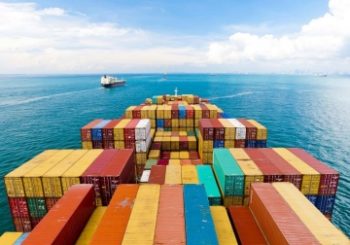
Carriers’ overall on-time and transit time reliability decreased in April as the great migration of vessels ensued amid launching of the mega ocean shipping alliances, 2M, OCEAN Alliance, and THE Alliance on April 1.
The on-time reliability in April decreased to 59% from 63% in March 2017, according to the latest data provided by intelligence provider CargoSmart.
During the six-month period, January experienced the lowest reliability of 56%, while November had the highest reliability of 70%.
April also saw a decrease when it comes to transit time reliability, dropping to 52% from 53% in March. In the past six months, the highest transit time reliability was 63% in November, while the lowest was 47% in February, CargoSmart’s data further shows.
Based on the intelligence provider’s latest study, as of May 19, 91% of the vessels have been rolled out on the three mega alliance services for the trans-Pacific trade and 94% of the vessels have been rolled out on the three mega alliance services on the trans-Atlantic trade. The alliances continue to deploy vessels on their new services, including some of the largest vessels ever to visit US ports.
The study further indicates that the longest average waiting time occurred in April with 10.3 hours, which increased from 8.5 hours in March. November had the shortest average waiting time of 6.2 hours.
In terms of regions, the on-time reliability for the Asia-Middle East trade showed the sharpest reduction, from 73% in March to 61% in April, while the Europe-Oceania trade achieved the biggest increase, from 59% in March to 78% in April.
The transit time reliability for the Asia-Oceania trade decreased the most from 84% in March to 71% in April, while reliability for the Europe-Oceania trade increased the most from 57% in March to 74% in April.
The Intra-Asia trade experienced the sharpest climb in reliability—41%, from 8.7 hours in March to 12.3 hours in April.
The average on-time reliability for April was 59%, and 13 carriers achieved higher-than-average reliability. However, when compared with March, 21 out of 24 carriers experienced varying degrees of decrease in April. Only Maersk Line, MSC, and Safmarine showed improvement in on-time reliability during April.
Twelve out of 24 ocean carriers experienced a decrease in transit time reliability in April compared with March. Hapag-Lloyd experienced the largest decrease by 12%, from 57% in March to 45% in April. APL showed the biggest improvement, from 46% in March to 50% in April.
Compared with March, only two carriers showed a reduction in average waiting time: ZIM, whose waiting time dropped from 11.6 hours in March to 10.8 hours in April, and MCC, whose waiting time dropped from 7.3 hours in March to 7.0 hours in April. The overall average waiting time in April was 10.3 hours, CargoSmart said.
Copyright Ships & Ports Ltd. Permission to use quotations from this article is granted subject to appropriate credit given to www.shipsandports.com.ng as the source.